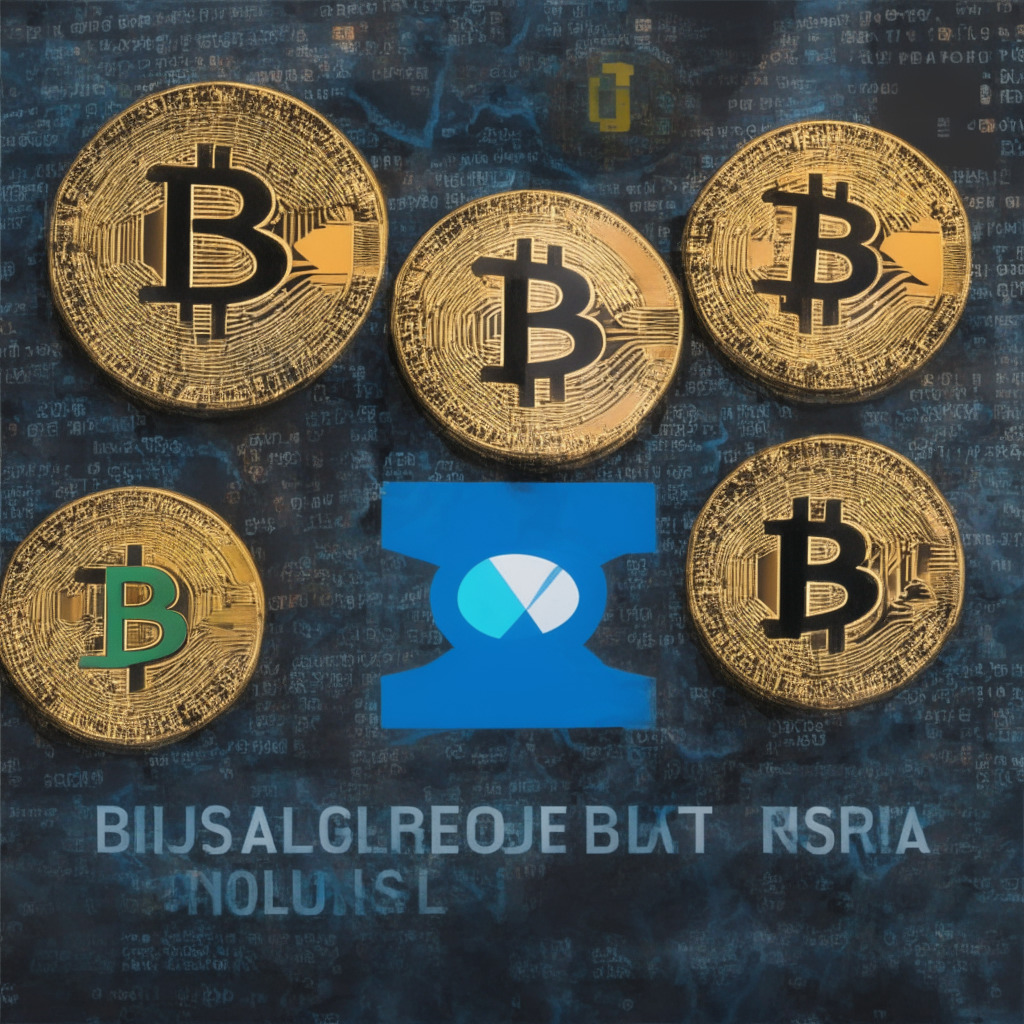The Nigerian Federal government approved a “national blockchain policy” after consultation with 56 institutions and personalities. This move indicates the institutionalization of blockchain technology in Nigeria. However, the Central Bank’s stance on privately issued digital currencies remains a roadblock, impacting the future of the Nigerian blockchain and cryptocurrency space.
Search Results for: Central Bank of Nigeria
Nigeria’s Naira Scarcity: A Case for DeFi Over CBDCs and the Road to Cashlessness
At a recent gathering of local blockchain experts, the discussion revealed the potential for blockchain technology to have alleviated Nigeria’s naira shortage. Initiatives such as minting new naira notes and driving Central Bank Digital Currency adoption, the experts argued, could have been executed more effectively through a decentralized finance (DeFi) system. This would empower citizens and better prepare them for future transitions. While blockchain promises transparency, concerns about scalability and environmental impact remain.
Blockchain Future in Nigeria: Regulatory Challenges and Optimism on the Road Ahead
The Digital Assets Summit by SIBAN discussed Nigeria’s regulatory stance on blockchain technology. Stakeholders addressed concerns over the Central Bank’s reluctance to adjust crypto policies. National IT Development Agency’s new Blockchain Policy shows government’s progressive stance, focusing on Web3 Education to improve blockchain’s penetration despite language barriers and regulatory uncertainties.
Blockchain Regulation: A Comparative Study of Nigeria’s Leaps and America’s Gains
“The article examines the progress of blockchain regulation from two contrasting perspectives: Nigeria, known for its cryptocurrency-awareness, and the US, with its comprehensive regulatory frameworks. The piece discusses the regulatory challenges in Nigeria and the US’s approach in achieving a balance between enforcement and tech evolution.”
Blockchain Literacy in Nigeria: A Struggle Amidst Linguistic Diversity and Regulatory Obstacles
Despite the growing blockchain and crypto awareness in Nigeria, key challenges remain around public education. Linguistic diversity poses difficulties in a country where over 500 languages are spoken. A disconnection between local banks and crypto-exchange firms further complicates the landscape. Nevertheless, Nigeria is proactive in overcoming these hurdles by implementing language-friendly education strategies about blockchain technology.
Nigeria Surpasses U.S in Crypto Knowledge and Adoption: A New Frontier or Regulatory Challenge?
The report by YouGov and ConsenSys confirms Nigeria’s emergence as a leading crypto-savvy nation, beating the US and several European countries in digital asset knowledge and intended investment interest. With a crypto awareness of 99% among Nigerians, up to 70% comprehend the value and mechanisms of blockchain technology. A significant 90% of participants expressed pan to invest in digital assets within the year, despite the national bank’s unclear stance on crypto.
Incredible Crypto-Awareness in Nigeria: An Unforeseen Leader in the Blockchain Revolution
In a recent survey by Consensys, 99% of Nigerians reportedly understand cryptocurrencies, making Nigeria the global leader in crypto-knowledge. Despite regulatory hurdles, 90% of respondents plan to invest in cryptocurrencies, viewing them as protection against hyperinflation. The survey underscores increasing global adoption of cryptocurrencies, particularly in economically troubled regions.
Central African Republic on Track to Tokenize Land: A Blockchain Leap or Misstep?
The Central African Republic is making waves in the crypto world by tokenizing its land and resources on the Sango blockchain platform. This innovative approach includes the use of technology for citizenship acquisition, land ownership, and diverse investments, thus enticing potential investors and promoting a “new era of financial empowerment through blockchain technology”.
Unveiling Nigeria’s Blockchain Revolution: Rethinking National Youth Service Certification
The Nigerian government is leveraging blockchain technology to counter certificate forgery in their National Youth Service Scheme. This marks a transformation towards digital certification, potentially optimizing hiring practices by ensuring document legitimacy. The country’s adoption of blockchain aims to bolster transparency and promote sustainable economic growth.
Binance’s Nigerian Conundrum: A Battle for Financial Dominance and Regulatory Control
“Regulatory actions in Nigeria are shaping the crypto scene, with the Bureau De Change Operators Association calling for a ban on Binance due to its pressure on the local currency. Binance’s huge trading influx poses competitive difficulty for local bodies, raising concerns of threats to liquidity. Despite embracing cryptocurrency, Nigeria remains cautious of crypto platforms operating without necessary authorization.”
Navigating the Unsettled Seas of Crypto World: Egorov’s Debt & Nigeria’s Binance Battleground
“The world of decentralized finance (DeFi) is filled with both promise and risk. Recent concerns about Curve Finance’s founder’s $100 million debt, backed by 400 million CRV tokens, could trigger a potential DeFi crisis. Also, Nigeria’s warning to Binance about operating without a license heightens risk levels and shows the need for vigilant crypto landscape and market monitoring.”
Nigeria’s Cautious Stance on Crypto: Balancing Investor Safety and Industry Growth
“The SEC of Nigeria has warned investors against interacting with crypto exchange, Binance, citing its lack of necessary local operating license. This highlights the regulatory challenges confronting the evolving blockchain sector, which could potentially hinder innovation and growth.”
Navigating the eNaira conundrum: Nigeria’s Struggle for Greater Digital Currency Adoption
“Nigeria is struggling to expand the usage of its central bank digital currency, eNaira, amidst a thriving cash-dependent informal economy. Despite its efforts to enhance the currency’s adoption with upgrades like contactless payments, structural and infrastructural challenges hinder widespread adaptation. Future success heavily pivots on strategic adjustments and effective implementation.”
Navigating through Nigeria’s eNaira: A Leap or a Stumble towards a Digital Future?
Nigeria’s Central Bank remains committed to their digital currency project, eNaira, despite changes in leadership. The bank has moved to integrate Near Field Communication technology to support contactless payments. The implementation is hoped to enhance acceptance of the CBDC, with the bank highlighting the app’s many benefits, including programmable capabilities and the support of intervention programs. However, challenges remain, including lower than expected adoption rates and tensions with commercial banks.
Bundle’s Strategic Pivot: Swapping Crypto Exchange for P2P Dominance in Nigeria
Bundle, the renowned social payments platform, has decided to discontinue its crypto exchange service to focus on its successful peer-to-peer platform, Cashlink. Despite Nigeria’s tough stance on digital currency transactions, the country remains a hotspot for crypto activities, particularly through peer-to-peer platforms.
Nigeria’s Bold Blockchain Bet: The eNaira NFC Upgrade and Its Implications on Cryptocurrency
“Nigeria’s Central Bank has updated its central bank digital currency project, eNaira, by integrating Near Field Communication technology. This upgrade is expected to enhance contactless payments, drive user adoption, and further restrict fraudulent activity. Nigeria continues to explore strategies to improve digital currencies’ global adoption despite challenges.”
The Gathering Momentum of Central Bank Digital Currencies: Promise and Uncertainty
“Recent research reveals 93% of central banks are actively looking into Central Bank Digital Currencies (CBDCs). Despite this interest, 68% claim they aren’t ready to release their own digital currency soon. Emerging markets, aiming for financial inclusion, lead CBDC adoption.”
15 Central Bank Digital Currencies by End of Decade: A New Era of Finance or Privacy Threat?
By the end of this decade, around 15 retail central bank digital currencies (CBDCs) could be globally available, covering nearly 95% of the world economy according to BIS. This emerging technology can offer significant benefits, but also brings challenges like privacy concerns.
Navigating the Paradox: Nigeria’s Approach to Taxing Cryptocurrency Despite Regulatory Uncertainty
“Nigerian authorities plan to implement a 10% tax on digital assets, including cryptocurrencies, stirring concerns among industry participants. Stakeholders question this premature move while commercial banks are barred from facilitating cryptocurrency transactions, highlighting complexities in the nation’s stance towards digital currencies.”
Unexpected Consequences: Nigeria’s 10% Crypto Tax Hurdles and Future Blockchain Prospects
Nigeria’s 10% capital gains tax on digital asset profits faces hurdles due to the country’s uncertain stance on cryptocurrency. The complex nature of crypto transactions, reliance on self-reporting taxes, and central bank’s restrictions contribute to these challenges. Stakeholders call for friendlier policies to ensure market growth.
Nigeria’s SEC Crackdown on Binance & US Regulatory Battle: What it Means for Crypto’s Future
The Nigerian SEC ordered a cease and desist notice against Binance Nigeria Limited, a “scam entity” claiming association with Binance. This development occurs amidst regulatory scrutiny in Nigeria, lawsuits in the US, and ongoing legal battles between exchanges and regulatory agencies, raising crucial conversations about the future of the crypto market.
Bank of England Inches Towards CBDC: Exploring Pros, Cons, and Privacy Concerns of Britcoin
The Bank of England and the BIS completed a yearlong project, Rosalind, exploring the practicality and potential benefits of a Central Bank Digital Currency (CBDC). Findings suggest CBDCs could expedite person-to-person payments, enable innovative financial products, and reduce fraud, paving the way for the Digital Pound, informally known as “Britcoin.”
Binance Ordered to Cease Operations in Nigeria: Assessing Market Impact & Future Regulatory Challenges
Nigeria’s SEC orders Binance to cease operations in the country, declaring them as “illegal” due to lack of registration and regulation. The commission warns investors of crypto-assets’ “extremely risky” nature and threatens further action against similar exchanges operating in Nigeria.
Binance Faces Legal Challenges: Impact on Nigeria’s Crypto Market and Regulatory Future
Nigeria’s SEC deems Binance illegal, following a lawsuit by the U.S. SEC. This impacts one of Africa’s most prominent crypto hubs, as the Middle East and North Africa region leads in crypto adoption. New regulations aim to ensure a secure environment for digital asset use amid rapid growth.
Binance Nigeria Shutdown: A Precedent for Crypto Regulation or Growth Hindrance?
The Nigerian SEC ordered an immediate halt of Binance’s Nigerian unit’s operations, citing its unregistered and unregulated status. This action raises questions about further regulatory actions against other crypto-related businesses in Nigeria and highlights the regulatory uncertainty surrounding the country’s crypto industry.
Elon Musk’s DOGE Lawsuit, Silvergate Bank Liquidation, and CBN’s Crypto Ban: A Tumultuous Week in Crypto
Elon Musk faces a proposed class action lawsuit by investors alleging manipulation of Dogecoin (DOGE) cryptocurrency, causing billions in losses. Meanwhile, private bank Xapo integrates with the SEPA network, and the US CFTC invites comments on risk management program changes.
Bank of Japan’s CBDC Pilot: Global Trends and Privacy Concerns Clash
The Bank of Japan’s CBDC initiative report reveals 11 countries have introduced a central bank digital currency, while 18 others are in the pilot stages. Amid growing global interest, concerns about privacy and regulatory challenges persist as nations explore CBDCs’ potential in the future of finance.
Security Breach at Nigeria’s Patricia Platform: Weighing Benefits and Dangers of Crypto Trading
The recent security breach of Nigerian crypto trading platform, Patricia, has raised concerns about digital asset safety. This incident highlights the risks associated with cryptocurrency trading and questions the efficacy of current security measures, emphasizing the need for stronger regulations and robust security protocols in the industry.
Stablecoins for Dairy: Crypto Adoption in Argentina’s Central Market and the Future of Finance
Argentinians are using USDT stablecoin to purchase dairy products at Buenos Aires’ Central Market, thanks to a partnership between Tether and KriptonMarket. This offers a layer of protection against market fluctuations amid the country’s hyperinflation and fiat peso devaluation. Embracing cryptocurrencies showcases the potential for financial freedom in unstable economies while acknowledging the risks and uncertainties involved.
Nigeria’s National Blockchain Policy: Economic Leapfrog or Cryptocurrency Oversight?
Nigeria’s Federal Ministry of Communications and Digital Economy has approved the National Blockchain Policy, emphasizing the country’s interest in digital innovation. This move aims to benefit public and private sectors, reduce reliance on oil and gas, and align with the ‘DIGITAL NIGERIA’ Roadmap for a secure transaction environment. Despite promising outlook, skepticism remains regarding the integration of blockchain technology without significant attention to cryptocurrencies.
Nigeria’s Blockchain Policy: Balancing Innovation, Regulation, and Skepticism in Crypto Adoption
Nigeria’s recent approval of its national blockchain policy has sparked anticipation and skepticism, aiming to institutionalize blockchain technology within the nation’s economy. The policy’s impact on cryptocurrencies and the challenge of establishing effective regulations will determine Nigeria’s future as a digital powerhouse in Africa.
Nigeria Approves National Blockchain Policy: Impact, Pros, Cons, and Future of Crypto
Nigeria recently approved the National Blockchain Policy, aiming to build a blockchain-driven economy enabling secure transactions, data sharing, and value exchange among individuals, businesses, and government. The policy is expected to improve trust and growth, fostering innovation and prosperity for all stakeholders involved.































